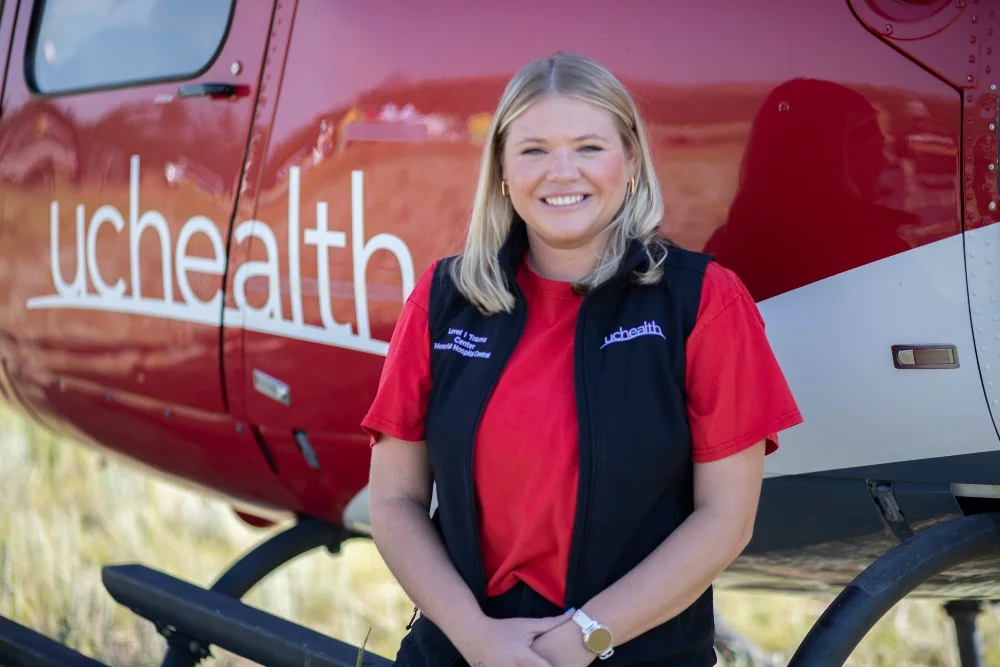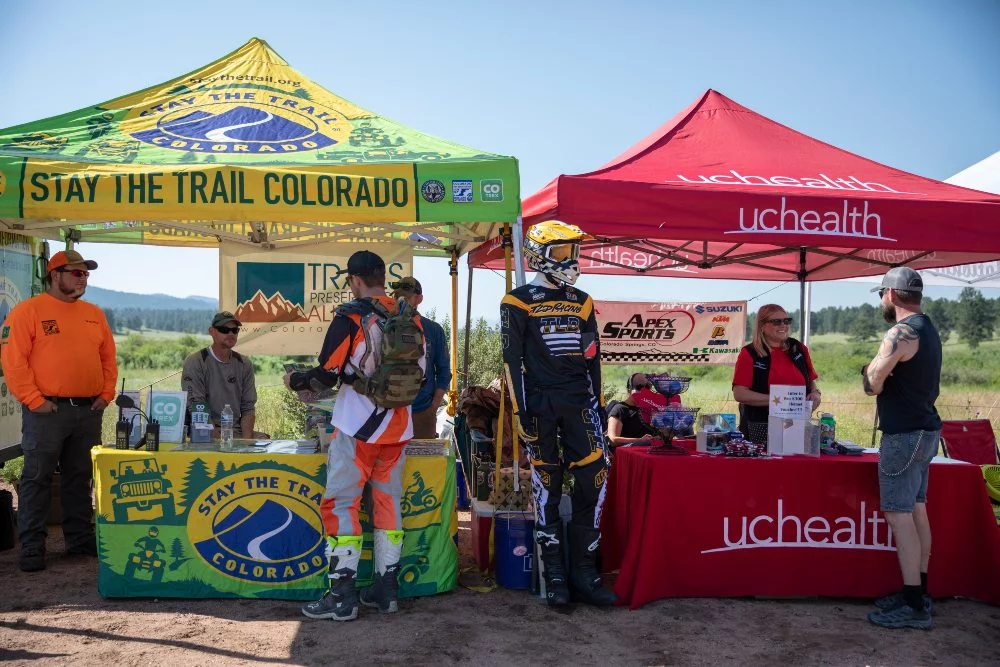
Creating a collaborative work group to boost safety for people riding off-highway vehicles
With off-highway vehicle accidents on the rise in Teller County, Hannah Carlo, an injury prevention specialist and paramedic at UCHealth Memorial Hospital Central, has taken the lead in addressing the issue. She spearheaded the creation of a collaborative work group aimed at improving safety on local trails.
In 2024, accidents related to off-highway vehicles or OHVs were the second leading cause of injury treated at UCHealth Pikes Peak Regional Hospital. Tasked with investigating this increase of OHV injuries, Carlo began her search for data to better understand the scope of the problem.
But as she quickly discovered, “the data was nonexistent.”
Carlo collaborated with the Colorado Department of Public Health and Environment to comb through billing codes in hopes of uncovering patterns. Still, the information available offered little clarity. The lack of reliable data underscored the urgency for a community-driven approach.
In response, Carlo assembled an OHV work group, a partnership among different agencies such as Stay the Trail, Children’s Hospital Colorado and other key stakeholders. The work group’s mission is clear: educate riders, promote safe practices and reduce preventable injuries.
“We want everybody to be enjoying Colorado’s recreation, but we just want you to do it safer,” Carlo said.
One of the work group’s standout initiatives: pop-up trailhead events, designed to make safety information both accessible and fun. These interactive events feature helmet giveaways, educational outreach and even Sasquatch sightings, with Carlo often donning the costume herself to connect with trail users in a memorable and lighthearted way.

A key resource distributed at these events is an educational brochure developed by the work group titled, “A trip to the trail shouldn’t include a trip to the hospital.” This concise guide outlines essential safety tips, state laws and trail regulations to help riders prepare before they hit the dirt.
The initiative has already started to shift local behavior. Carlo says she’s hearing directly from Teller County residents who appreciate the agencies’ presence and outreach.
“The community has reached out to thank us for being there and for educating people,” she said. “Being up there and making safety fun has created a culture that these communities care about their trails and their systems and they want people to be safe.”
According to Carlo, the work group’s trailhead presence is helping to shift behavior in meaningful ways.
“The people who live there have seen it,” Carlo said. “People are safer out on the trails. There are more people wearing helmets. It’s probably been a slow culture change, but it’s getting there, and I think we’re helping accelerate it.”
She credits the program’s success to the wide network of partners who stepped up to be part of the solution.
“This program has been a really large collaboration with a lot of different people from different agencies who really care about keeping these trails safe,” Carlo said. “I couldn’t have done it on my own. I’m really thankful that we have such a good group of community stakeholders who were willing to come together.”
You Make Extraordinary Possible
Together, we recognize and honor the qualities within ourselves by shining a spotlight on how each and every one of us improve lives in big ways and small.
